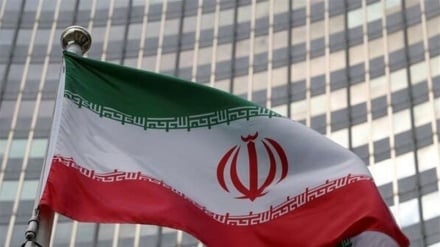Reasons behind prolongation of Bahraini revolution (1)
The wave of Islamic awakening that has swept across a number of countries in the Middle East and North Africa as of the year 2011 has shaped a number of developments in these countries.
Meanwhile, Bahrain has also been influenced by this wa ve of Islamic awakening. People of Bahrain, who could no longer bear the injustices of Aale Khalifa regime, seized the opportunity and commenced and launched their revolutionary movement. Given the paramount regional and international importance of this tiny island; foreign actors, led by the Saudi regime, reacted to this revolutionary movement, highlighting the role of foreign elements throughout Bahrain’s developments from the very beginning.
Those, who play decisive roles in the crisis in Bahrain, pursue a number of relatively durable goals and strategies. The important fact about the developments of Bahrain is that the majorities of actors, despite their different goals and interests, have acted within a win-lose framework; with none of these actors adopting an alternative approach; the consequence of which has been the prolongation of the revolution of people of Bahrain. The prolongation of the Bahraini people’s revolution is also due to a number of domestic causes. These challenges are partly the result of the repressive nature of Bahraini regime; and the refusal of this regime to accept change. The revolution of Bahrain also faces challenges; such as lack of unity among Bahraini opposition groups, and the infiltration of Aale Khalifa agents in the opposition groups.
The regional and international structural challenges have also caused a number of problems for the revolution of Bahraini people, all of which have led to prolongation of this revolution.
The peaceful movement of people of Bahrain, which has started as of the year 2011, has reinforced the wave of Islamic awakening; raised the vigilance of people; promoted religious dialog; enhanced the role of women; alerted the revolutionary youths; and disgraced Aale Khalifa regime. However, it also faces a number of challenges, which will impact the present and future state of the five-year long revolution of Bahraini people.
These challenges are at times the consequence of domestic structures, or related to regional and trans-regional variables. These challenges have practically set the stage for prolongation of the revolution of Bahrain.
The Bahraini revolution maintains a number of characteristic features which are rooted in the demographic makeup, absence of Shias at the centers of power, discrimination, political and economic problems, the meddlesome policies of the Saudi regime, and the deployment of the US Fifth Naval Fleet Command Unit in Bahrain; setting apart this revolution from other revolutions.
The approach adopted by Aale Khalifa regime toward the revolutionaries in this country relies upon the security policy. Decline in the domestic legitimacy of the Bahraini regime, and the widening rift between Aale Khalifa regime and people of this tiny Persian Gulf island, has led the Bahraini regime to always rely upon the reactionary regional and trans-regional players for maintenance of the security of this regime. Furthermore, the geographical and strategic position of Bahrain has led to the engagement of numerous actors in the regional and international scenes, in this country, granting regional and global dimensions to the Bahraini crisis.
Meanwhile, the contradictory interests of foreign powers in Bahrain have led to the failure of efforts to reach a viable solution. Moreover, the domestic challenges of revolutionaries, which shows the low abilities of domestic actors and opposition groups, has highlighted the impact of foreign actors on the developments in Bahrain. On this basis, the disunity of opponents, on one hand, and the absence of any a solid and logical strategy in Bahraini regime’s policies for resolution of the crisis, as well as the continued reliance of Bahraini regime on its regional supporters for suppression of revolutionaries are some of the root causes of prolongation of the process of revolution in Bahrain.
Currently, the revolution of Bahrain is facing a variety of challenges in the domestic, regional, and international domains. The continuation of this status quo is in favor of the Bahraini regime, which has imposed a number of restrictions for Bahraini revolutionaries, especially Shias, stirring tough political and even economic circumstances for these revolutionaries.
Concurrent with the 5th year of Bahraini revolution, a few experts don’t see a promising horizon for the Bahraini revolutionaries, claiming that the Bahraini revolutionary movement has entered a phase of attrition. This is because the Bahraini revolution faces a number of challenges. The opposition of the Bahraini regime with the Bahraini revolution is one of the challenges which the revolutionary movement of Bahraini people faces.
Given that the majority of Bahraini people are Shias, any democratic development in the eyes of Aale Khalifa regime will lead to partly delegating power to Shia groups. On this basis, the Bahraini regime’s strategy urges the obstruction and opposition of any in-depth reform in the political scene; via adoption of a number of tactics and approaches. Meanwhile, Bahraini regime remains divided into two different factions.
One faction backs suppression, and opposes any reform or talks with opponents. This faction is led by the Bahraini premier. The other faction; who is partly moderate and is led by the Bahraini crown prince, agrees with minor reforms, talks with opponents, and relatively peaceful approaches.
However, the hardliner faction wields more power and domination in the Bahraini regime, and, more importantly, is backed by Aale Saud. Thus, the Bahraini regime leans toward adoption of tough approaches against opponents, and negation of any actual reform.
Meanwhile, the prevalence of Sunnis in the Bahraini army and security forces has led to the compliance of these forces with Aale Khalifa regime.
The widespread heavy-handed approach of the Bahraini regime has obstructed the protests and has instilled fear among opponents. However, this approach is not possible in the long run for a number of reasons; such as the pressure piled up by international assemblies on the Bahraini regime, and continuation of protests.
The Aale Khalifa wrongly imagines that due to the low population of Bahrain and its scattered nature, and the support of foreign powers for the Bahraini regime, the anti-regime protests cannot continue in Bahrain, and therefore the crisis can be contained without the grant of major political concessions.
The important point about the developments in Bahrain is that the Bahrain regime has offered to hold talks with the opponents, while the majority of Bahraini opposition leaders are still in jail. More importantly, only 35 seats have been considered for the Shia opponents, out of the 300 seats available in the framework of national talks. The related talking points also revolve round minor topics.
Overall, upon the insistence of Bahraini regime on its suppressive policies, and the futile efforts of Aale Khalifa for ending protests via a number of means, such as cancellation of the state of emergency, and marginal talks; the popular protests have continued in Bahrain.
Also, upon the realization of opponents about a lack of resolve in the Bahraini regime for major political reforms, the possible future talks are seemingly doomed to fail and will not lead to major changes.
MR/ME


